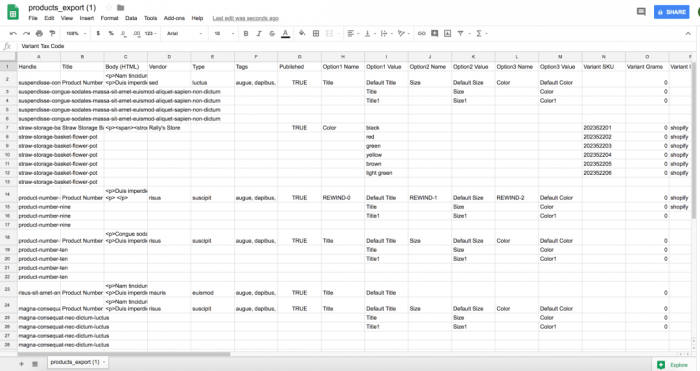It takes a tremendous amount of time and effort to get an online business up and running. Finding a product or niche, figuring out logistics, choosing a platform, creating your branding, planning marketing campaigns … the list goes on and on. And not to mention the start-up money needed to get (and keep) all of these things moving. It is all in hopes of a big payoff — and for small retailers, that big payoff is tied to the holiday shopping surge each year. In fact, Salesforce predicts eCommerce sales will hit nearly $140 Billion this holiday shopping season.
While online commerce has leveled the playing field a bit and empowers small businesses to compete with big brands during the Cyber Monday crunch, it has also exposed them to the world of cyber attacks. It wasn’t too long ago that large corporations were the silent target of cyber criminals. Not any more. Security experts are seeing an explosive growth of attacks on small businesses, with 70% being targeted during 2018. Some stores were down for hours, some for days. And many couldn’t recover — shutting their doors for good. Incidents of ransomware are also on a dramatic rise with a 500% increase in occurrences over this time last year, specifically leading into Black Friday and Cyber Monday.
Why Data Backups Matter
Home-based businesses often lack the resources and manpower to navigate these unforeseen emergencies. So it is crucial to protect your revenue stream by avoiding or mitigating downtime and restoring your site as quickly as possible. To accomplish this, you need to back up your site’s data. Having a complete backup of your product pages, customer info, orders, visual content, etc. allows you to properly reproduce your site.
Here’s the catch though: The majority of cloud applications don’t backup all this data. And if you are relying on them to help you during a disaster, you will be out of luck. Major cloud players like Shopify, BigCommerce and WooComerce put tremendous energy into ensuring their platforms are always functioning, but they do not backup all the important individual account data you would need to quickly restore your site after a cyber attack. As cloud players follow the “Shared Responsibility Model” of data backups, each business owner is responsible for their own data.
What does all of this mean for you? Going into the holiday season, your business is at risk of being compromised, and you likely lack the time, resources and data to recover quickly. It sounds harrowing, but there are solutions you can put in place to help mitigate or avoid this scenario altogether. We call it a “backup strategy,” and there are essentially three different backup strategies you can implement to help restore your site in the event of a data disaster (all with various pros and cons).
Backup Options
The first solution is to create a manual backup of your store. All eCommerce platforms allow for this in some way. It involves downloading a comma-separated values file (CSV) for all the critical areas of your store. The data may be saved in a spreadsheet or in a plain-text file. Either way, you are getting data from your site in its absolute rawest form.
These files should be labelled, organized and then placed in a password-protected folder. It’s a low-tech and straightforward strategy. The downside is that in the event of a data disaster, you are still essentially rebuilding your store. All the CSV files need to be reloaded manually, which is incredibly time consuming and often overwhelmingly complicated. One other caveat: Not everything from your site can be exported so blogs or product images will also need to be put back in. This manual solution is cost effective, but by no means time friendly.
The second backup strategy is for the more technically advanced retail home-business owner. It involves creating your own backup program to run behind your eCommerce site using something called an “Application Programming Interface,” or API for short. What is an API? In layman’s terms, an API is an agreement between you and the platform outlining how to build customized solutions that interact with their software. Fair warning: This is definitely a task for a software developer or someone with a strong background in computer programming.
Having your own software program that backs up your store saves all the headaches of a manual restore, but it won’t come cheap. Most small business owners don’t have a software developer on the team or the skills to do it themselves, so pulling in the right resources can be a costly endeavour. It is also important to note that cloud companies are continuously making changes changes to their platforms and APIs, so your custom solution will need to be constantly tested to make sure it is still working properly.
The final option is to leverage a solution that does all the work for you. Whether it is Shopify, WooCommerce, Salesforce, Quickbooks Online or some other major software platform, most have third-party applications available to back up their data. They range in cost and what data they backup, so make sure you research and compare. Reviews and user ratings are often a good unbiased source.
This strategy will still be an expense, but it will be a significantly lower cost than a custom-built solution, while still eliminating the time-consuming demands of a manual strategy. When working with a proven provider, you should have rapid access to comprehensive backups so you can fully restore any affected cloud app data powering critical business components like your online store, cloud accounting data, etc. In the event of a cyber attack, especially during the Cyber Monday online shopping surge, these backups serve as a safety net for your potential profits.
Be Prepared for the Holiday Shopping Surge
Cyber threats will continue to grow as our economy moves online. Don’t let all the blood, sweat and tears you put into building your home business get derailed or go bust. A proper backup strategy can help you stay in business both for this holiday season and for many more to come.
Find a Home-Based Business to Start-Up >>> Hundreds of Business Listings.
















































